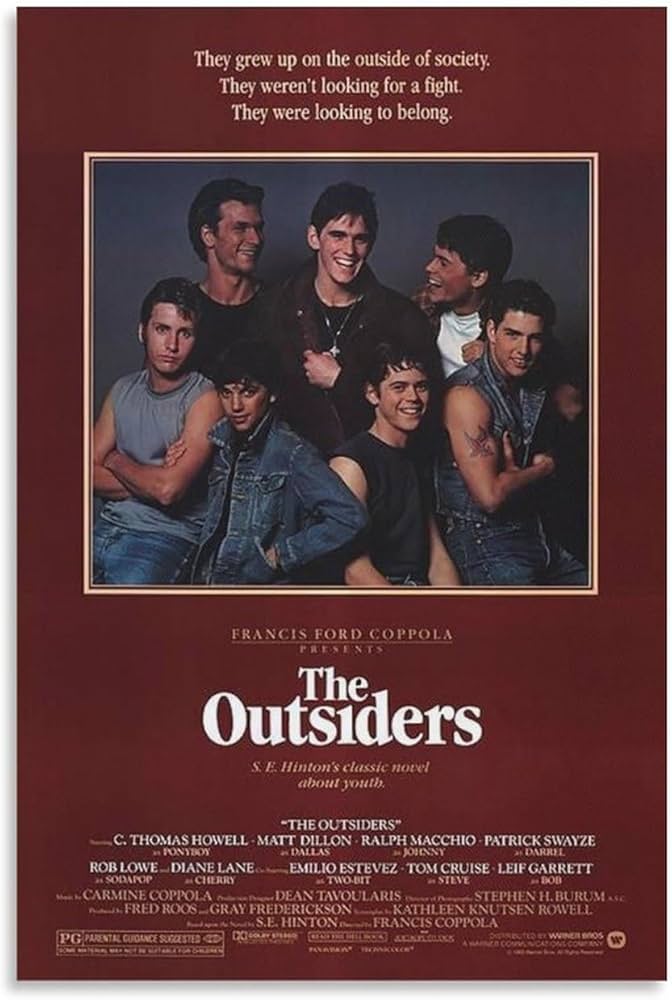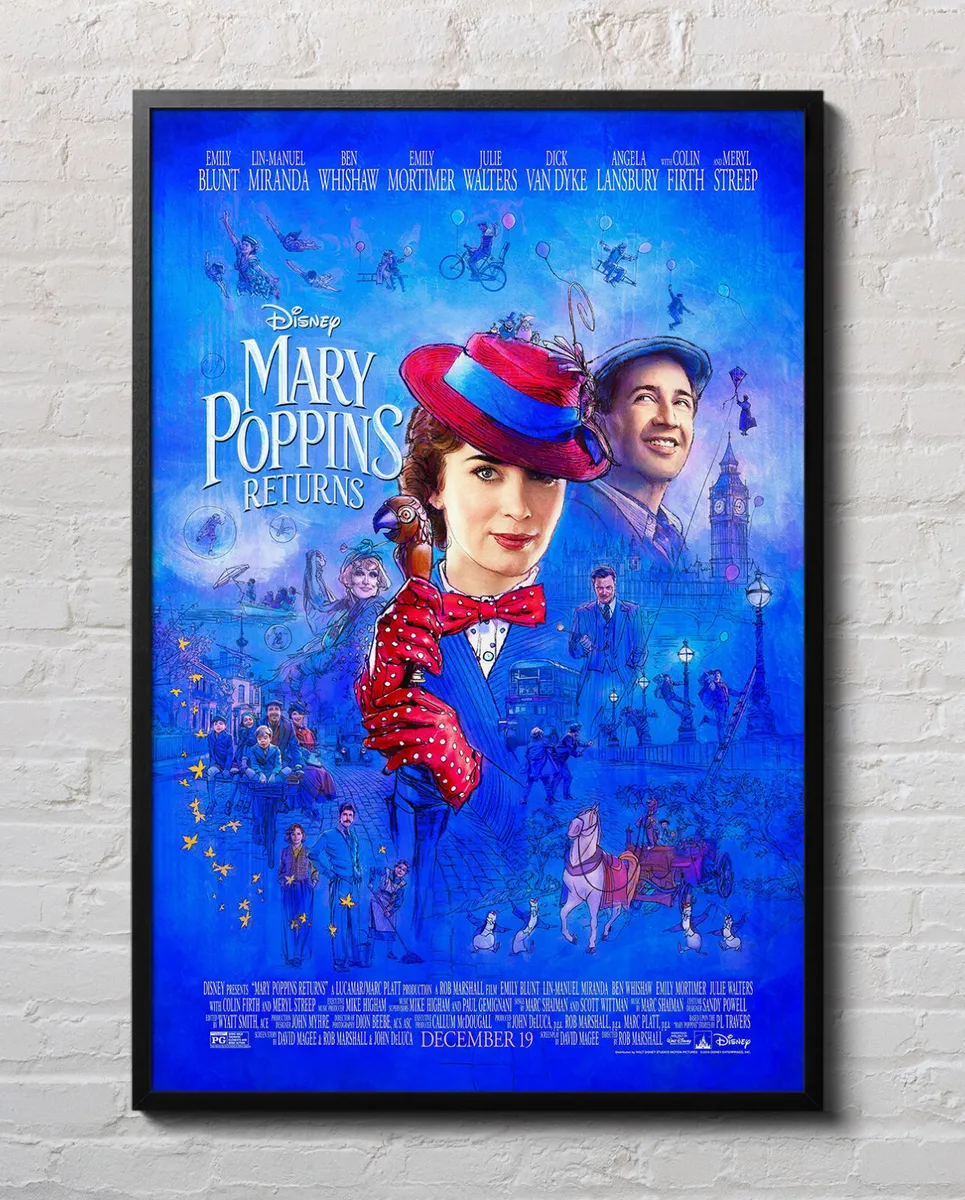“Nothing Gold Can Stay”
It is impossible for anyone to critique this film and not mention the amazing assemblage of actors that this film amassed. Based on the novel by S.E. Hinton’s “The Outsiders”, It is truly an incredible cinematic experience. Rob Lowe, Emilio Estevez, Patrick Swayze, C. Thomas Howell, Ralph Macchio, and Diane Lane, and directed by Francis Ford Coppola! From the innocence of Tom Cruise to the dynamics of Matt Dillon, this film has a lot to even offer the staunchest of critics. This is truly a coming-of-age film with climatic consequences. Taken directly from her debut novel written while she was still a high school student, S. E. Hinton has bequeathed to the public a story of courage, choice, and results. Generally speaking, the film is about a class struggle among teens in 1960’s Oklahoma. The Greasers (the poor kids) and the Socs (the rich kids). After leaving a movie theatre, a confrontation between the two rival gangs becomes fatal when a fellow Soche is stabbed and killed. Feeling helpless, the two responsible Greasers, Ponyboy (C. Thomas Howell) and Johnny (Ralph Macchio), seek the help of their adolescent apprentice, Dallas Winston (Matt Dillon), a sort of respected hood of the town. Giving them money and a place to hide out until things cool down, the teens are preoccupied with their situation and their conflicting views on the choices they have made so far in their young lives.
As the film enhances the numerous encounters and situations of the other boys in the film, a climax enrages the entire structure of the plot when a fire breaks out in the place where Johnny and Ponyboy have been hiding out. As a result, they manage to save several lives of those trapped inside and are then held as heroes of the town. Unfortunately, due to the actions which resulted in Ponyboy and Johnny hiding out in the first place, a huge riot is called upon by the two gangs to settle their differences. As the plot thickens, Johnny and Ponyboy, because of their heroic deeds in saving children from a fire, have succumbed to injuries themselves, specifically, Johnny, who ends up dying as a result. This infuriates his friend and tough gang leader, Dallas, who seeks revenge for his death by making certain ‘the rumble’ gets the full attention of the town and the authorities. When he hears the news of Johnny’s death, he is unable to cope and begins to exhibit strange behavior patterns that end up getting him killed. The news of Johnny and Dallas’s death has a frightening impact on both rival gangs. Another new and more serene plot begins to take form in the film. Finally, with coming to terms and acceptance of his friend Johnny’s death, Ponyboy is seen with a new light in his eyes; he gets this from a note written to him by Johnny just before he passes away. In it, he reminds him to ‘stay gold.’ It is from a Robert Frost poem (Nothing Gold can Stay) he has been reading. He interprets the ‘gold’ to Ponyboy as ‘right now’. You are a kid who has your whole life in front of you. You have been given a second chance. Now is your moment. This is the gold. With that, the whole of the film is brought into a much brighter light as their lives continue to harvest.
One of the most impressive features in this film is how Coppola reminds us of the struggles of youth; that is, the longing to be accepted, regardless of status, popularity or wealth, or how pretty or ugly one is in the observation of another. The teens in this film of 1960’s Oklahoma can be no more special or outcasted as teenagers anywhere else in America. This film is also a rough draft to the adjustments of challenge and of choice. Coppola is highly sensitive to the boys’ choices and the consequences they are compelled to endure. It seems he has no other option but to make them small heroes for the large mistakes they have acquired in their struggle to cultivate an identity that will be accepted by all who are around them, including their rivals. It is not by coincidence that these belligerent hooligans have the personalities of mob gangsters and the faces of Renaissance angels. There are many lavish iconographic tapestries that sway back and forth in this production. In many scenes in the film you cannot help but be a Greaser; if you are a Soc, you wouldn’t tell anyone. That is the magic that captures this film so intently. Coppola suggests idolizing the ‘bad boy’, because there is always some kind of good found in them.
Getting back to the poet Robert Frost, this film is gold. And it does ‘stay.’ The outstanding attempt by Coppola to capture a class struggle, sexual innuendos, recognition, courage, choice, fortitude, and compliance are what this film is starving to tell of. It brings back, in a mist of our own past struggles, the deep and tormented development of who we are, and what sacrifice it has taken all of us to be accepted and revered. Coppola does not fail at his most admirable task: to capture the reality of a fast life. At times, the film shares a split personality crisis, only to be sewn by the end in promises made from gold. To capture another formidable essence of reality would be a waste of life. The boys in the film seal the approval with their fists and with a change.
| Directed by | Francis Ford Coppola |
|---|---|
| Screenplay by | Kathleen Rowell |
| Based on | The Outsiders by S. E. Hinton |
| Produced by |
Fred Roos |
| Starring |
Rob Lowe
|
| Cinematography | Stephen H. Burum |
| Edited by | Anne Goursaud |
| Music by | Carmine Coppola |
|
Production
company |
Zoetrope Studios
|
| Distributed by | Warner Bros. |
|
Release date
|
|
|
Running time
|
91 minutes (Theatrical version) 114 minutes (The Complete Novel) |
| Country | United States |
| Language | English |
| Budget | $10 million |
| Box office | $25.7 million |
© 2024, Mark Grago. All rights reserved.





